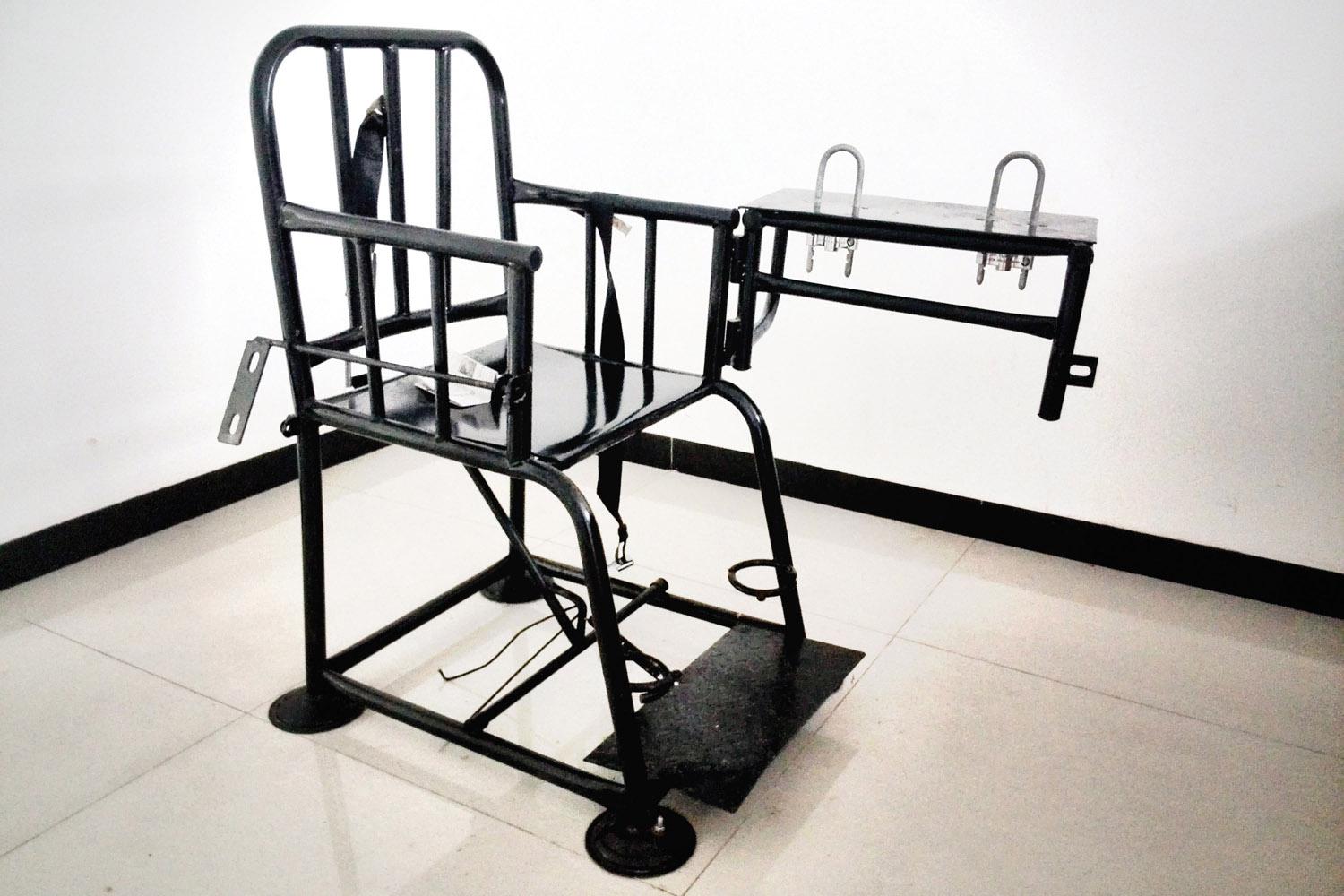The Problem with China's Latest Anti-Mafia Crackdown
| Publisher | Human Rights Watch |
| Publication Date | 13 February 2018 |
| Cite as | Human Rights Watch, The Problem with China's Latest Anti-Mafia Crackdown, 13 February 2018, available at: https://www.refworld.org/docid/5a8eb1e5a.html [accessed 27 May 2023] |
| Disclaimer | This is not a UNHCR publication. UNHCR is not responsible for, nor does it necessarily endorse, its content. Any views expressed are solely those of the author or publisher and do not necessarily reflect those of UNHCR, the United Nations or its Member States. |
Past Campaigns Rife with Torture
February 13, 2018 8:00PM EST
By Maya Wang
"Strike at mafia forces" and "make the people feel safer" – these seem like unobjectionable goals for China's latest crackdown against organized crime, set to run through 2021.
 A "tiger chair" specially designed to restrain detainees. Former detainees say that police often strap them into these metal chairs for hours and even days, depriving detainees of sleep, and immobilizing them until their legs and buttocks were swollen. © 2014 Private
A "tiger chair" specially designed to restrain detainees. Former detainees say that police often strap them into these metal chairs for hours and even days, depriving detainees of sleep, and immobilizing them until their legs and buttocks were swollen. © 2014 Private
But the campaigns are often ridden with abuses. As prominent lawyer Zhang Lei, who has represented many people accused of mafia dealings, put it: "These anti-mafia cases follow the same model." That "model" is simple: torture of suspects followed by their forced confessions, intimidation of family members and business associates, and judges who defer to police and Chinese Communist Party dictates.
Consider the case of Chen Huiliang, a man investigated in 2008 by Fujian police on allegations of "participating in a mafia." Police held him for six months in an illegal detention facility, strapped him to an iron "tiger chair" for nearly two months, and beat him with police batons. Chen lost the use of one leg and suffered spinal nerve injuries. Or the case of Li Qinghong, a businessman accused of being a gang leader by Guizhou police in 2008. Police hung him by his wrists and deprived him of sleep. In both cases, the court failed to seriously examine these torture claims; Chen and Li were sentenced to five and 14 years in prison, respectively.
China's anti-crime campaigns are also problematic because they can easily double as partisan purges, such as the targeting of political rivals during the anti-mafia drive of former Chongqing party czar Bo Xilai. So it is a worrying sign that China's top court announced that those who "threaten political security" would be targeted alongside with drug kingpins, loan sharks, and other types of criminals in this nationwide campaign. Local governments said they will use the campaign to target the political crimes of their choice, including against people who collectively petition the government, and against supporters of the Tibetan spiritual leader the Dalai Lama.
The Chinese government should end its politicized criminal campaigns and emancipate the judiciary from Communist Party control. Putting a stop to torture is a critical first step.
Link to original story on HRW website

